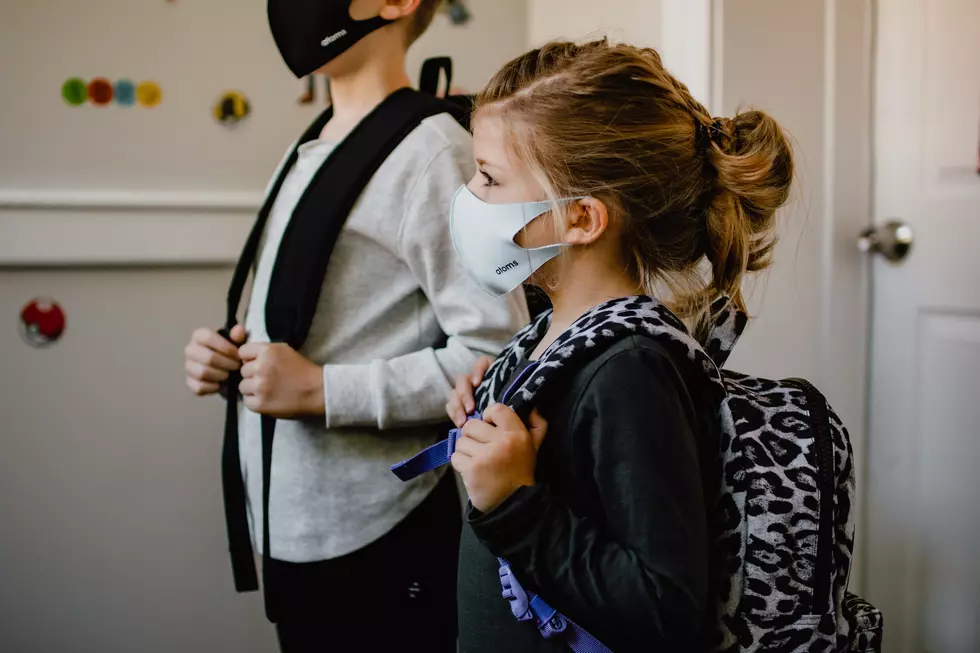
Kids & COVID: What Lubbock Parents Need To Know For This Fall
While the Summer of 2021 brought a big drop in COVID cases, many folks have noted an uptick in the number of folks affected by the virus this present season. This brings a bit of concern with the new school year officially underway and people spending more time indoors and in confined spaces. We spoke with Dr. Naticia Mortensen, a Family Medicine Physician affiliated with Covenant, about the best ways to handle this virus if your kids catch it this Fall.
Expect Different Symptoms Than Previous Variants
“We're dealing with a different variant now than we were in the almost two years of COVID. The good news about this variant is that we haven't had as much severe illness with it, we haven't had as many hospitalizations with it, and we haven't had as many severe symptoms with kids at all,” Mortensen stated.
This is a sigh of relief for parents, but unfortunately, this variant spreads much more easily and symptoms seem to mimic other illnesses that we normally see in the Autumn months. “With the one that's going around right now, what we're mostly seeing here in Lubbock is sore throats. It's presenting a lot like strep, so kids who have a sore throat, headache, or any kind of upper respiratory symptoms similar to allergies, sinus pain, and pressure need to get a test.”
The other thing to note is that unlike the original form of the virus, symptoms will manifest much more quickly with this version. That means it is important to be proactive with addressing symptoms the moment they arise in order to prevent it from spreading to other kids. Thankfully, since most cases have been mild, most parents can treat their kids at home.
Top Treatment Recommendations
“If [the test] is positive, they need to be quarantined for at least five days. That's when they are the most contagious. The important things to do are just monitor their symptoms, monitor their fever, and make sure they're getting enough fluid intake. They don't have to eat if they don't feel like they're hungry, but offer them plenty of snacks and really just treat it exactly like you would treat a kid with a cold or the flu,” Mortensen stressed.
She notes that rest is paramount for a quick recovery and that parents should address a fever and any discomfort by alternating Tylenol and Motrin. However, if your child’s temperature rises above 100.1 or they show signs that they are not getting enough oxygen (increased breathing, dizziness, or blue lips and fingertips) you need to see a physician right away.
Additionally, while over-the-counter pain medications are a helpful solution for older kids, infants should not be given these types of medications, unless specifically advised by your child’s doctor. In fact, it is always best to consult with your pediatrician on dosages no matter what the age of your child. This also allows them to stay apprised of your child’s health.
When treating at home, most cases resolve within three to five days, but Mortensen notes that their return to school is dependent on a specific factor. “They're okay to go back after five days, if they haven't had a fever in the last 48 hours of those five days. If they've spiked a fever on either of those last two days, then you need to give them another two days. They do recommend masking for another five days, [but] the viral load decreases significantly after those first five days, so even though they may not be feeling great, they're not as contagious as they were.”
Prevention Is Key
Finally, she notes that the best thing that parents can do to protect their kids is to get them vaccinated. Covenant has vaccines for children as young as six months of age. Lastly, other easy ways to help diminish your kid’s chances of catching the virus are teaching them good hand washing techniques and stressing the importance of not touching their faces, putting their hands in their mouths, or sharing foods and drinks with other kids.
Pediatricians Wish Parents Knew These Top Seven Things
Top Nine Reasons Kids End Up in The ER in the Summer Months
Top 9 Car Seat Mistakes Parents Commonly Make
More From Lonestar 99-5 FM









